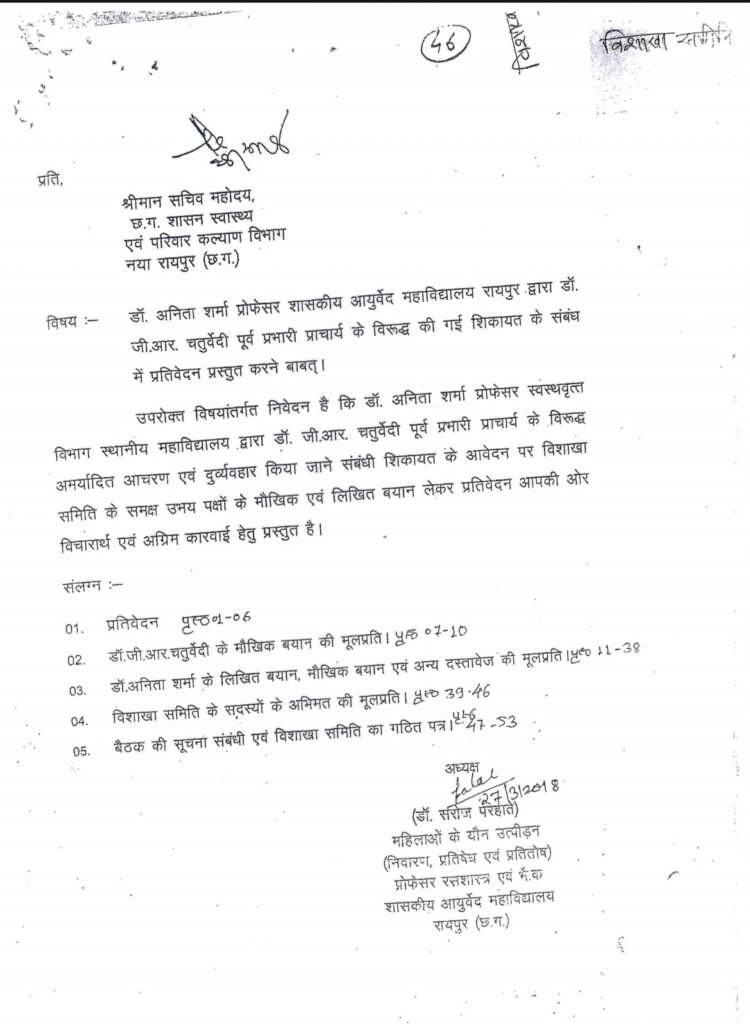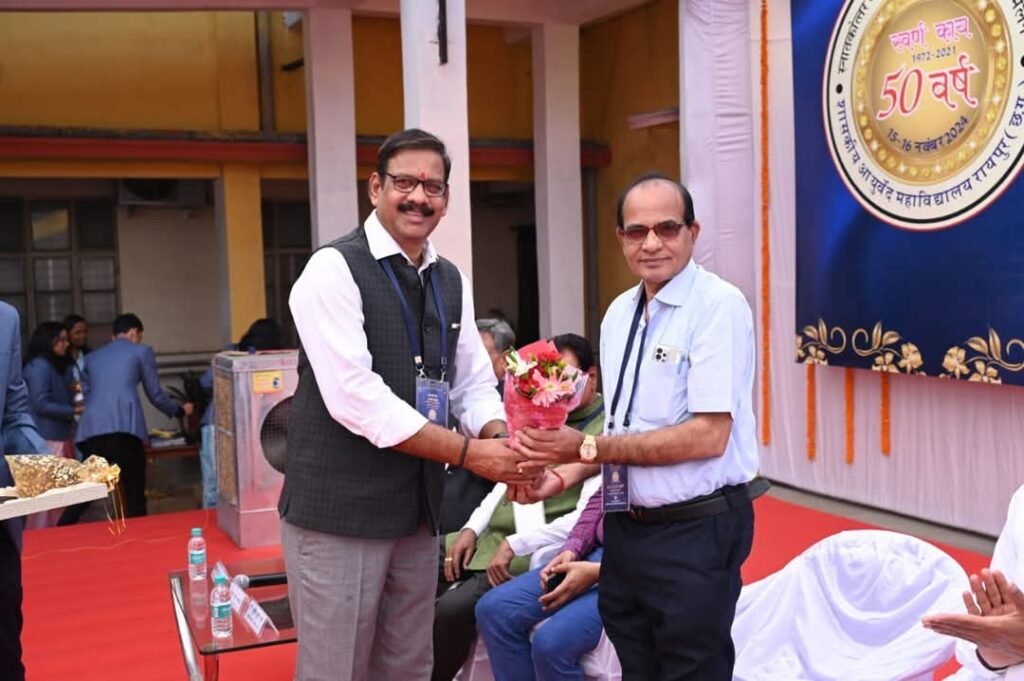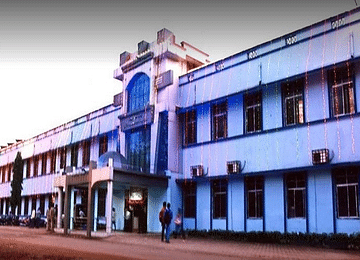Ayurveda College Professor Alleges Harassment After Probing Sexual Misconduct
Whistle-blower Faces Retaliation; case highlights issues in protecting women professionals in Chhattisgarh.
Raipur: Dr. Saroj Parhate, a senior professor and head of the Ras Shastra and Bhaishajya Kalpana Department at the Government Ayurveda College, Raipur, has accused senior officials and colleagues of harassment, mental torture, and character assassination in what she claims is a systematic attempt to sabotage her career and reputation. Dr. Parhate’s troubles reportedly began after she conducted an inquiry under the Vishakha Guidelines into a sexual harassment complaint against former Principal Dr. G.R. Chaturvedi. She claims her inquiry found Dr. Chaturvedi guilty, and a report was submitted to the Directorate of AYUSH. However, the report ended up as cries in the wilderness, no action was taken, and she became the target of a sustained campaign of harassment.

The Allegations
Dr. Parhate alleges that for the past six years, she has been subjected to a relentless campaign of professional and personal attacks. Anonymous letters and fabricated complaints were used to initiate inquiries against her, which she says were baseless and aimed at tarnishing her reputation. In one instance, a three-member committee led by Dr. S.R. Inchulkar dismissed allegations against her as unfounded. However, Dr. Inchulkar has himself been accused of leaking the anonymous complaints to the media, increasing Dr. Parhate’s public humiliation.
Dr. Parhate asserts that the harassment was orchestrated by a nexus of corrupt officials and colleagues with vested interests, aimed at forcing her to resign from her position. Despite enduring severe mental distress, she has refused to succumb to the pressure and continues to fight for justice.
Broader Pattern of Harassment
Dr. Parhate’s case is not an isolated one. In a similar incident, Dr. Kesar Patra, a former Deputy Director in the AYUSH department, alleged harassment by her superior, Dr. Sunildas. The mental pressure reportedly forced her to resign from her position. Such cases reflect a broader pattern of systemic challenges faced by women professionals in Chhattisgarh.
The state, which has a strong tradition of capable women officers achieving excellence in their fields, has often failed to provide them the institutional support they need. The harassment faced by Dr. Parhate and Dr. Patra points towards the urgent need for systemic reforms to ensure a safe and equitable workplace for women professionals.
Unanswered Questions
The case of Dr. Parhate raises critical questions about the handling of sexual harassment complaints and the role of institutional mechanisms in protecting whistle-blowers. Despite her submission of the Vishakha Guidelines report implicating Dr. Chaturvedi, no action was taken against him. Instead, Dr. Parhate became the focus of retaliatory actions, including departmental inquiries and public defamation. The reasons for the suppression of the report remain unclear.
Dr. Parhate also highlights the complicity of other officials, including Shanti Kishore Manjhi, a retired assistant superintendent, in perpetuating the harassment. According to Dr. Parhate, the nexus of corrupt officials within the institution operated with impunity, enabled by a lack of accountability at higher levels.
Political and Administrative Nexus
The allegations against Dr. Chaturvedi also point to a troubling nexus between politics and administration. Dr. Parhate claims that Dr. Chaturvedi enjoyed the support of former Congress minister Dr. Shiv Dahariya, his former student. This backing allegedly allowed him to operate with impunity during the previous Congress government’s tenure.

With the BJP-led government under Chief Minister Vishnudev Sai now completing its first year in office, there are growing calls for a fair and impartial investigation into the allegations against Dr. Chaturvedi and other implicated officials. Critics argue that justice in Dr. Parhate’s case is essential to restoring faith in the system and ensuring that women professionals are protected from such harassment.
Impact on Institutional Integrity
The harassment faced by Dr. Parhate has also had broader implications for the institution’s integrity. She alleges that the harassment was part of a larger conspiracy to protect individuals involved in corruption and irregularities within the college. The absence of accountability and the targeting of whistleblowers have raised concerns about governance and oversight in state-run institutions.
Dr. Parhate’s persistence in seeking justice despite years of harassment and mental distress reflects her resilience. However, her case highlights the urgent need for reforms to protect whistleblowers and ensure transparency in institutional processes.
Women’s Rights in Chhattisgarh
Chhattisgarh has a cultural tradition of respecting women’s rights, yet cases like Dr. Parhate’s reveal a stark contrast between tradition and institutional realities. Even senior woman IAS officers, known for being upright and working with integrity, are facing challenges in advancing to positions commensurate with their capabilities.
A Call for Justice and Reform
Dr. Parhate’s case has drawn attention to the need for systemic reforms to address harassment and ensure accountability in state institutions. Women’s rights activists and public figures have called for a thorough investigation into her allegations and the broader issues of governance and oversight at the Government Ayurveda College.
The BJP-led government has an opportunity to demonstrate its commitment to women’s rights by ensuring justice for Dr. Parhate and taking steps to prevent such incidents in the future. Ensuring a safe and equitable workplace for women professionals is essential not only for individual justice but also for fostering an environment that allows talented individuals to contribute to the state’s progress.
